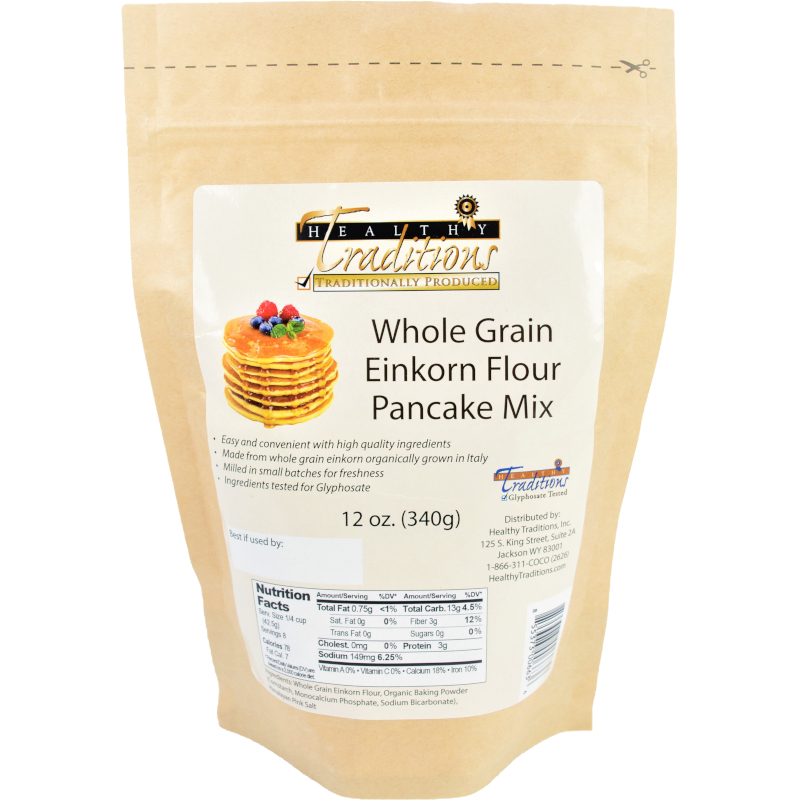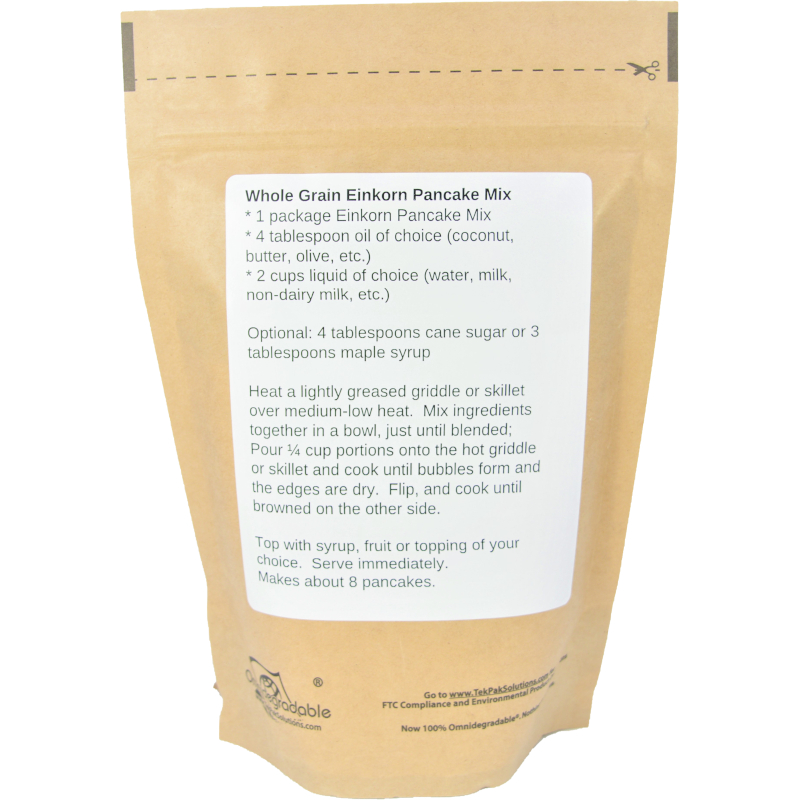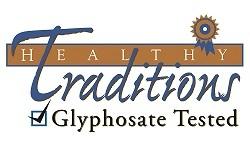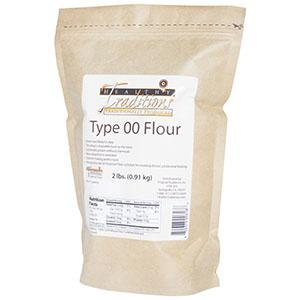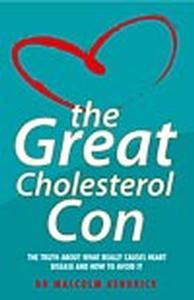Description
Whole Grain Einkorn Pancake Mix
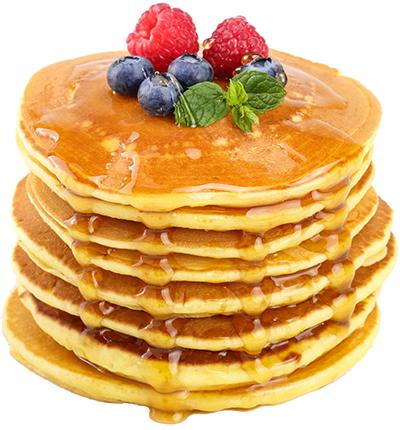
With our NEW Whole Grain Einkorn Flour Pancake Mix you no longer have to skimp on high quality ingredients to enjoy the convenience of a pancake mix; now you can have both! Our mix is made with simple, high quality dry ingredients, like our Einkorn Whole Grain Flour, and only needs your choice of oil and liquid to deliver up a batter that is ready for the griddle.
These delicious pancakes fry up light and airy as they are, but feel free to get creative when making them with batter add ins like blueberries and don’t forget real maple syrup for the traditional topping that satisfies.
History of Einkorn, the Ancient Grain
Einkorn is an ancient grain, and is known as the oldest variety of “wheat.” Einkorn is also sometimes referred to as “farro” or “farro einkorn.” Einkorn was first cultivated 5,000 to 10,000 years ago. It is classified as a “diploid” because it only has two sets of chromosomes. Modern wheat varieties are classified as “hexaploid,” having six sets of chromosomes, due to a long history of hybridization.
Einkorn is thought to have originated in the upper area of the fertile crescent of the Near East (Tigris-Euphrates regions), and is quite probably the main grain recorded in the earliest biblical history. Einkorn became widely distributed throughout the Near East, Transcaucasia, the Mediterranean region, southwestern Europe, and the Balkans, and was one of the first cereals cultivated for food.
Nutritional Characteristics of Einkorn
The ancient grain einkorn (triticum monococcum) is packed with nutrition. It is a rich source of the beta carotene lutein, a powerful antioxidant. Einkorn has the highest amounts of lutein of any other variety of wheat.
Einkorn is also a rich source of tocotrienols and tocopherols, powerful antioxidants and forms of Vitamin E. Compared to modern wheat varieties, einkorn has higher levels of protein, crude fat, phosphorous, and potassium.
Gluten and Toxicity
Since einkorn is such an ancient grain and the only known diploid classified variety of wheat still known to exist today, there has been considerable interest in the issue of gluten toxicity. One way of measuring gluten toxicity is by the gliadin to glutenin ratio, and einkorn has a much more favorable ratio than modern wheat varieties.
Einkorn has a gliadin to glutenin ratio of 2:1 compared to 0.8:1 for durum and hard red wheat. While this lower gluten ratio may hold some promise for gluten intolerance disorders, it should be cautioned that einkorn DOES contain gluten, and so those desiring to avoid all gluten are NOT recommended to consume einkorn.
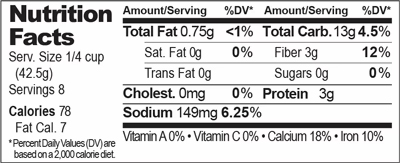
Ingredients: Whole Grain Einkorn Flour, Organic Baking Powder (Cornstarch, Monocalcium Phosphate, Sodium Bicarbonate), Himalayan Pink Salt
Whole Grain Einkorn Flour Pancake Mix Directions
- 1 package Whole Grain Einkorn Flour Pancake Mix
- 4 tablespoons oil of choice (coconut, butter, olive, etc.)
- 2 cups liquid of choice (water, milk, non-dairy milk, etc.)
- Optional: 4 tablespoons cane sugar or 3 tablespoons maple syrup
Heat a lightly greased griddle or skillet over medium-high heat. Mix ingredients together in a bowl, just until blended; mixture will be lumpy. Pour ¼ cup portions onto the hot griddle or skillet and cook until bubbles form and the edges are dry. Flip and cook until browned on the other side.
Top with syrup, fruit or topping of your choice. Serve immediately. Makes about 8 pancakes.
Special Packaging
When Healthy Traditions began to look at producing products in the U.S. from traditional sources, food that tested clean from GMOs, glyphosate, and other herbicides and pesticides, we were faced with a dilemma:
How do we package these high quality clean foods?
We began a search for packaging that did not contain harmful chemicals and was not harmful to the environment. What good is sourcing and selling high quality traditional food if it is going to be contaminated by the packaging?
The brown bags you see in our newest products, including our Italian Flour Pancake Mix, reflect what we found was currently the best option for packaging our high-quality line of traditional products.
These bags harmlessly decompose anywhere that microbes are present (salt and fresh water, soil, landfills or in a backyard compost).
They decompose into organic matter without leaving any pollutants behind. (Independent Lab tests show – “None Detected.”)
They have been lab tested for possible leaching of many heavy metals and pollutants, and none were found.

